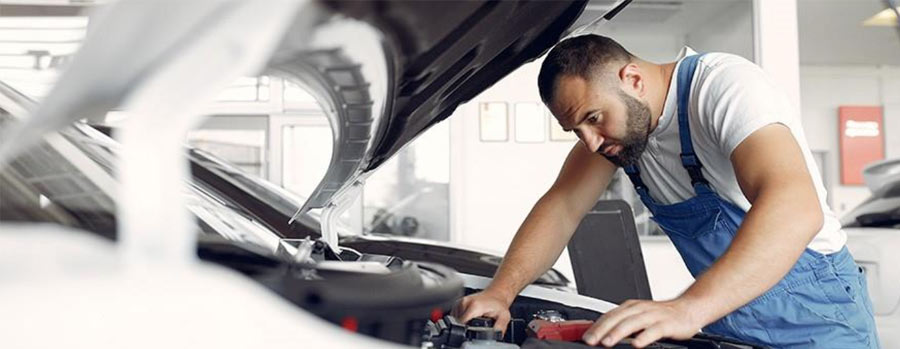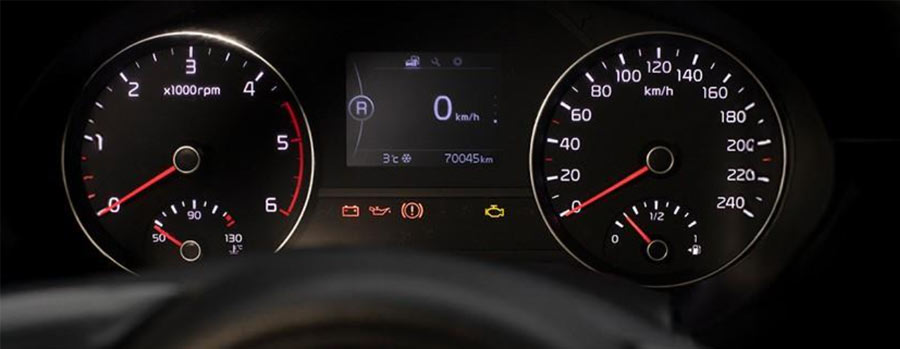You’re driving along US-1 in Vero Beach or maybe heading out on A1A for a beach day, when suddenly a dashboard warning light flicks on. For many drivers, this moment sparks confusion or even panic. Should you pull over immediately, or can it wait until you get home?
Understanding what each dashboard warning light means can save you stress, prevent costly repairs, and most importantly, keep you and your family safe on Florida’s roads.
Here’s a guide to the most common warning lights and what you should do if they appear.
1. Check Engine Light
What it looks like: A small outline of an engine (often orange or yellow).
What it means: This light could signal anything from a loose gas cap to a serious engine problem.
When to act: If the light is steady, schedule a service appointment soon. If it’s flashing, it indicates a serious issue pull over safely and call for roadside assistance.
2. Battery/Charging System Light
What it looks like: A small red rectangle with a plus (+) and minus (–) sign.
What it means: Your car’s battery isn’t charging properly. Heat and humidity in Indian River County shorten battery life, making this a common issue.
When to act: Don’t ignore it. If this light comes on while driving, you may have limited time before the car stalls. Stop by for a battery test or replacement, our expert technicians at Nissan Vero Beach can check whether it’s the battery, alternator, or another electrical issue.
3. Tire Pressure Monitoring System (TPMS) Light
What it looks like: An exclamation inside a horseshoe-shaped tire.
What it means: At least one of your tires is underinflated. With Florida’s hot pavement and sudden rain showers, tire health is critical for safe driving.
When to act: Pull into a gas station or Nissan of Vero Beach Service and check tire pressure. If the light stays on even after inflating, it could indicate a slow leak.
4. Brake System Warning Light
What it looks like: A circle with an exclamation or "BRAKE” in red.
What it means: This could point to low brake fluid or a more serious brake issue. Considering the frequent stop-and-go traffic around Vero Beach, brakes wear out faster here.
When to act: Don’t wait. Pull over safely and call for help, especially if you notice spongy brakes or hear grinding. A professional brake inspection is the safest move.
5. Oil Pressure Light
What it looks like: A red oil can with a drip.
What it means: Your engine isn’t getting enough oil pressure. This can lead to severe engine damage if ignored.
When to act: Stop driving immediately. Continuing to run the engine without oil pressure can cause catastrophic failure. Call for roadside assistance and schedule an oil service before getting back on the road.
6. Coolant Temperature Warning Light
What it looks like: A thermometer sitting in water waves.
What it means: Your engine is overheating. This is especially common in Florida summers, where high heat and heavy traffic can push cooling systems to their limits.
When to act: Pull over as soon as it’s safe and turn off the engine. Never open the radiator cap when the engine is hot. Call a tow or Nissan of Vero Beach Service at (772) 361-7300 for assistance.
7. Airbag Warning Light
What it looks like: A person sitting with a circle (airbag) in front of them.
What it means: There’s a malfunction in your airbag system, meaning they may not deploy in an accident.
When to act: Schedule a service appointment right away. Safety systems are one area you don’t want to compromise on.
Why This Matters for Vero Beach Drivers
Driving in Indian River County brings its own challenges, salty coastal air, sudden storms, and heavy local traffic all add extra stress to your vehicle. Dashboard warning lights are your car’s way of speaking up before a small issue turns into a major repair.
That’s why local drivers trust Nissan of Vero Beach Service Department. Our factory-certified technicians use advanced diagnostic tools to identify problems quickly and accurately. Whether it’s a minor sensor issue or a critical repair, we solve by installing genuine Nissan parts.
Don’t Ignore the Signs




